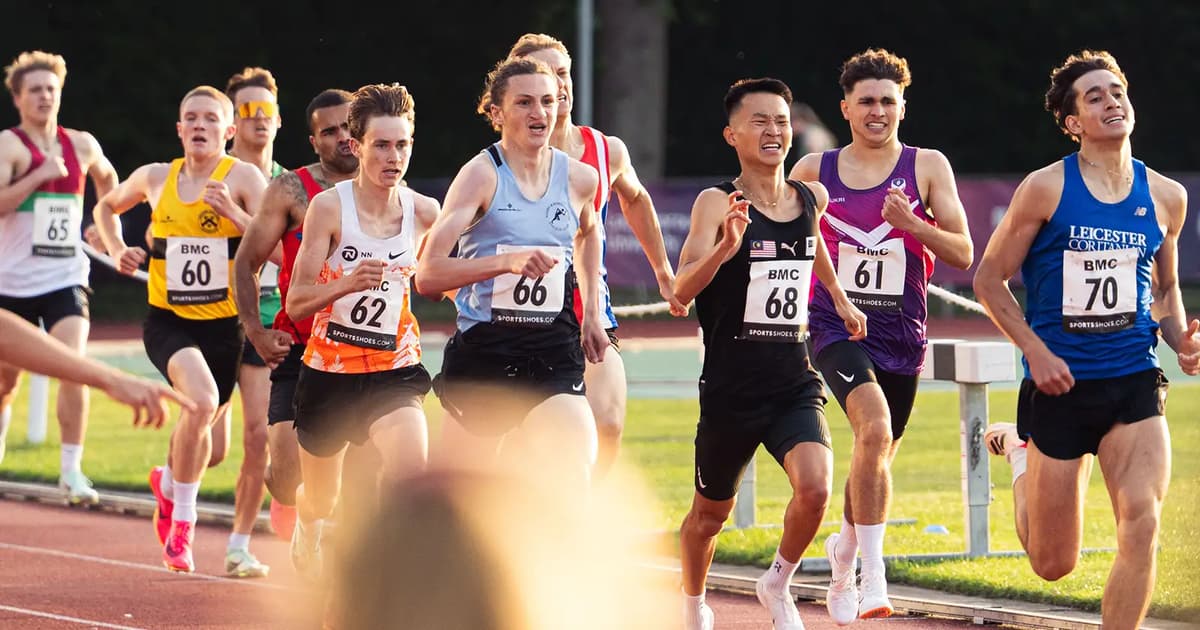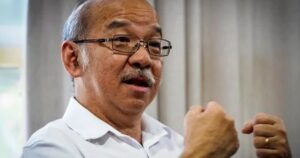
In his first ever competitive 10km, Kristian Tung ran not just to win a debut — but to smash a national record.
Sixteen days after rewriting Malaysia’s 3,000m standard in London, the 21-year-old stunned again in Rotterdam on Saturday, storming to a 30:07 finish — the fastest ever by a Malaysian.
That mark didn’t just topple Sanjay Manimaran’s short-lived record. It made Tung the fastest in Southeast Asia this year, ahead of Indonesia’s Pandu Sukarya, who clocked 30:29 in Tokyo in May.
For Kristian, juggling sports science and mathematics at Loughborough University, it was another moment that proved Malaysian athletics need not remain stuck in the past.
What makes Tung’s surge remarkable is how he has done it. Since the age of 12, he has coached himself — studying YouTube videos, messaging US coaches online, and experimenting with training methods.
Central to his regime is lactic threshold training — running at the highest pace his body can sustain while managing the build-up of lactic acid. Done right, it improves endurance and delays fatigue, vital for distance racing.
“I knew I had the shape to go under 31 minutes, but to do 30:07 was beyond what I expected,” Tung said by phone from Rotterdam.
“I just love to run. To see the clock stop like that — it’s special.”
Special indeed. On Aug 21, he had already stripped 11.19 seconds off S Muthiah’s 40-year-old 3,000m record with 8:15.81 in London.
In Rotterdam, against a strong field of 78, he finished 24th. Kenyan Amos Kipkemoi won in 27:58, but Kristian’s eye was firmly on the Malaysian mark.
The making of a grinder
Tung’s journey is pure grit. At 10, he was the boy at the back, beaten by everyone. He kept running anyway.
By 15, he was training with intent, winning school and age-group meets. By 19, he was a triple Sukma gold medallist.
He trains without a coach, without support from the national sports council or Malaysia Athletics, and relies fully on his father Danny’s sponsorship.
“All the long runs, the shin fracture rehab, the 130km weeks in lockdown — it finally feels like they paid off,” he said.
This year alone, his times have cascaded: 3:52.43 for 1,500m in June, 14:15.85 for 5,000m in August, then the two national records. “Momentum is building.”
Next up, Tung is plotting his first SEA Games in December in Thailand. He plans 12 weeks of uninterrupted training to sharpen for the 5,000m and 10,000m.
“Right now I feel like I’m still at the start line,” he said. “It’s always been my dream to run for Malaysia at the highest level. The SEA Games will be my first big chance.”
“We cannot waste this gift”
Federal Territory Athletics Association president V Pulainthiran, himself a former distance man, has been Tung’s loudest advocate.

“This is the kind of breakthrough Malaysian athletics has been desperate for,” he said. “To break two national records in 16 days — that’s elite-level stuff.
“In a sport where seconds are precious, Kristian keeps finding them in bunches. He has shown the hunger, the discipline, the talent. We cannot waste this gift.”
Pulainthiran has urged youth and sports minister Hannah Yeoh to step in with elite athlete backing.
“His father is carrying the load as his sponsor and that cannot continue. He needs proper financial support, facilities, and access to top races in Europe,” he said.
Most of Malaysia’s long-standing track records from the 1980s and 90s were set abroad, Pulainthiran added. “That’s the reality. Our best came when our athletes competed outside Malaysia.
“Kristian has shown the way again. The ministry and Malaysia Athletics must wake up.”
What Tung is building is more than numbers, he added. “His races are restoring belief to a sport long starved of international relevance.”
“For years people said Malaysia can’t produce distance runners,” Pulainthiran said. “I’ve never believed that. With the right support, we can compete again. Kristian is part of changing that story.”
For now, the boy who once finished last is out front, dragging the record books into the present. Rotterdam was another checkpoint on a road that could stretch much further.
Or, as Pulainthiran put it: “This is not just about Kristian. It’s about hope. He has lit the torch. Now it is on us to keep it burning.”






